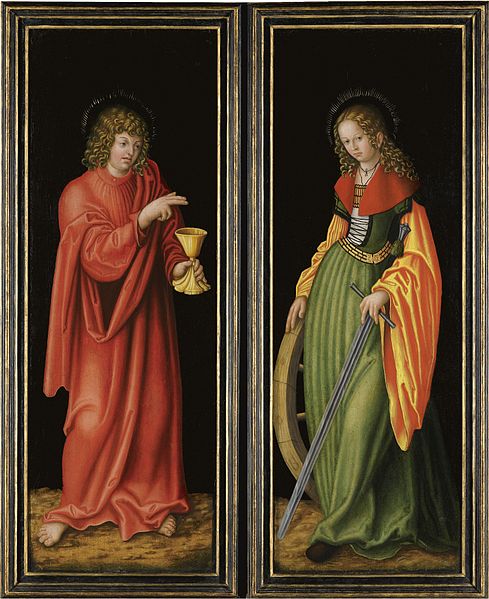Follow-up to yesterday’s post, in which I did not really answer Frank Weather’s argument against priests packing heat. His case is a strong one, and I didn’t think I had a firm opinion about it. All I thought I had to bring to the table was a set of cultural biases. On further reflection, let those cultural biases form themselves into an argument.
(Whatever the Church says, that’s what I accept. But for the moment I believe this question is open to speculation, so speculate I will.)
Before I lay out the conclusion to my speculation, I’m going to do a pile of clarifying. This is all just straight catechism talk, go check the source for yourself.
1. Self-Preservation is not the highest virtue.
Ditto for the defense of others. In the case of legitimate self-defense or protection of others, bad guys get the upper hand: It is not moral to preemptively kill someone on account of how they are probably going to be dangerous to somebody. You have to actually be under attack before you resort to lethal force.
2. There’s a time and place for martyrdom.
One may choose to boldly preach before the emperor, at risk of certain death, rather than to flee the persecution.
3. One may choose out of simple prudence to go about unarmed.
Even knowing that it may result in death to oneself and others, a person might choose, virtuously, to forgo assorted means of self-preservation out of a prudent determination that the unintended consequences would be disproportionate to the good being done.
You may choose not to take the medicine or undergo the surgery that could save your life, but which poses risks out of proportion to the benefit received. Likewise, you may choose not to carry the weapon that is the only way you could hope to survive a criminal attack, out of a prudent decision that it poses risks out of proportion to the benefit received.
4. One should always resort first and preeminently to non-lethal means to resolve conflict.
There’s no, “Am I allowed to kill yet?” thinking to legitimate self-defense. If you can run, run. If you can defuse the situation, defuse the situation. If it’s clear that all he wants is your wallet, for goodness sake hand over the wallet.
(It’s not always clear whether he just wants your wallet, or if he’s in the process of killing you. The catechism allows for the reality that you might unwittingly over-defend yourself in care for your own life. But if it does happen to be that clear, there you are. Don’t kill someone over mere money.)
***
Having set all that out as the framework in which we are operating, now my cultural biases get to go to work. We’re going to skip over pure self-defense, because I’m not going to quibble about whether priests ought to just choose martyrdom every time. Let’s move straight to the protection of innocent people in our care.
Here’s the thing:
There are a very few situations, but they are real situations, in which one must choose whether to use lethal force against an enemy or to allow an innocent person to suffer and die.
And in these few and rare situations, I am not at all concerned about whether this turns a priest into a “killer”. I am concerned about whether the priest is a decent man.
Let me put it more vividly: If Father Virtuous has no choice but to kill the bad guy or let the bad guy rape, torture, and kill my daughter, Father V. dammed well better kill the bad guy.
And it’s not just my daughter. Your daughter. The parish secretary. The kids in religious ed. The old guys lighting candles after daily Mass.
There’s no “I’m a priest” clause that sets aside one’s grave obligation to protect the innocent.
***
That’s Redneck Catholic 101, I guess.
Redneck Catholic 102 is this: Having accepted that priests are sometimes duty-bound to use lethal force, the rest of the question is just one of prudence.
At which point I charitably assume that Father Virtuous is on the job making his own, imperfect but prayerfully-informed decisions about what the prudent course of action is, given his particular circumstances.
Artwork: Lucas Cranach the Elder [Public domain], via Wikimedia Commons

















